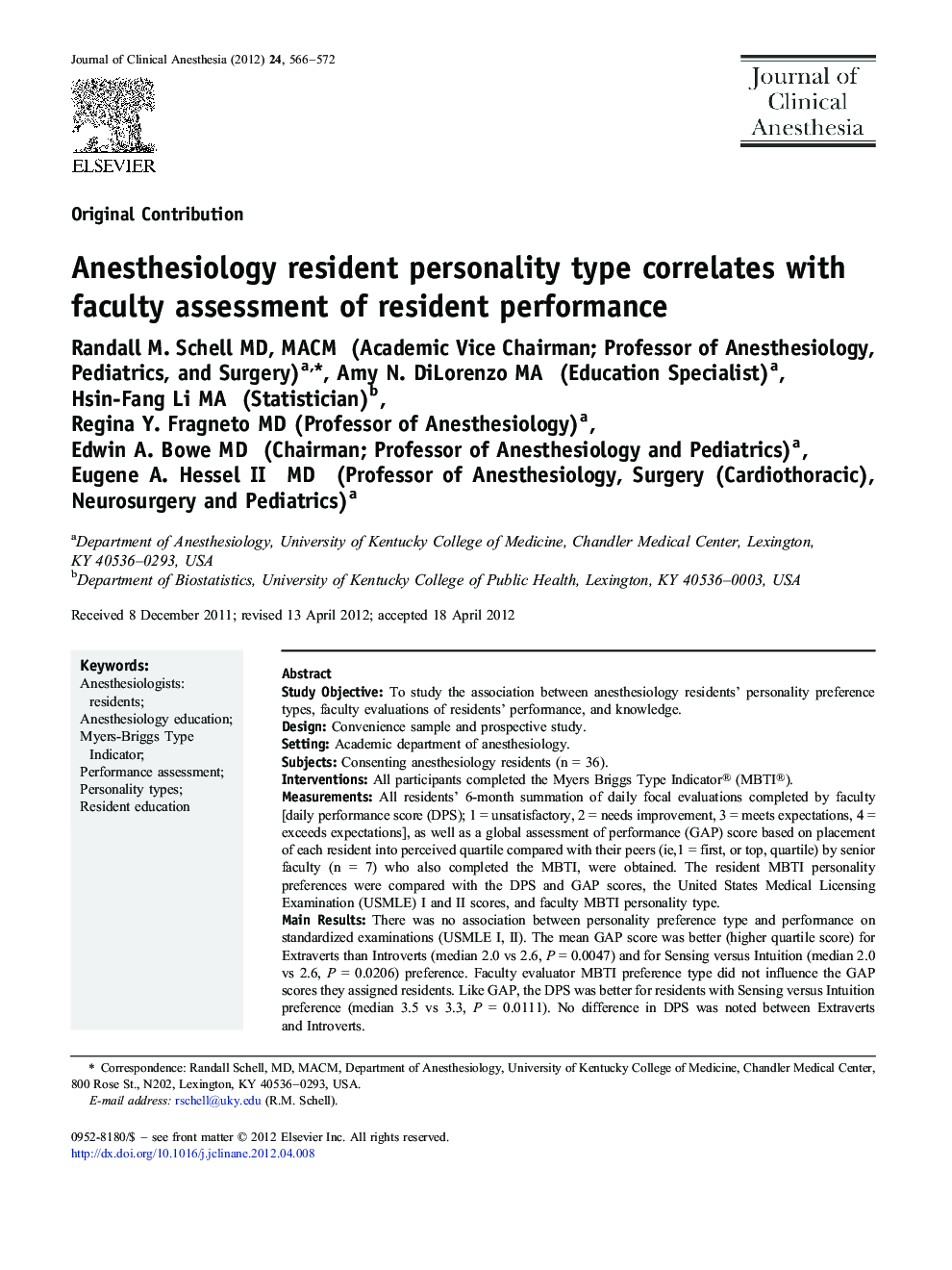| Article ID | Journal | Published Year | Pages | File Type |
|---|---|---|---|---|
| 2762623 | Journal of Clinical Anesthesia | 2012 | 7 Pages |
Study ObjectiveTo study the association between anesthesiology residents' personality preference types, faculty evaluations of residents' performance, and knowledge.DesignConvenience sample and prospective study.SettingAcademic department of anesthesiology.SubjectsConsenting anesthesiology residents (n = 36).InterventionsAll participants completed the Myers Briggs Type Indicator® (MBTI®).MeasurementsAll residents' 6-month summation of daily focal evaluations completed by faculty [daily performance score (DPS); 1 = unsatisfactory, 2 = needs improvement, 3 = meets expectations, 4 = exceeds expectations], as well as a global assessment of performance (GAP) score based on placement of each resident into perceived quartile compared with their peers (ie,1 = first, or top, quartile) by senior faculty (n = 7) who also completed the MBTI, were obtained. The resident MBTI personality preferences were compared with the DPS and GAP scores, the United States Medical Licensing Examination (USMLE) I and II scores, and faculty MBTI personality type.Main ResultsThere was no association between personality preference type and performance on standardized examinations (USMLE I, II). The mean GAP score was better (higher quartile score) for Extraverts than Introverts (median 2.0 vs 2.6, P = 0.0047) and for Sensing versus Intuition (median 2.0 vs 2.6, P = 0.0206) preference. Faculty evaluator MBTI preference type did not influence the GAP scores they assigned residents. Like GAP, the DPS was better for residents with Sensing versus Intuition preference (median 3.5 vs 3.3, P = 0.0111). No difference in DPS was noted between Extraverts and Introverts.ConclusionsPersonality preference type was not associated with resident performance on standardized examinations, but it was associated with faculty evaluations of resident performance. Residents with Sensing personality preference were evaluated more favorably on global and focal faculty evaluations than those residents who chose the Intuition preference. Extraverted residents were evaluated more favorably on global but not focal assessment of performance.
